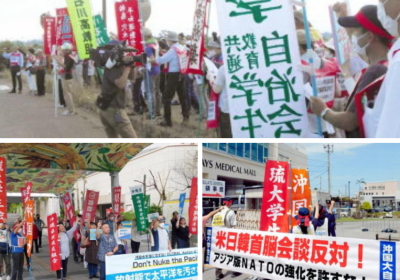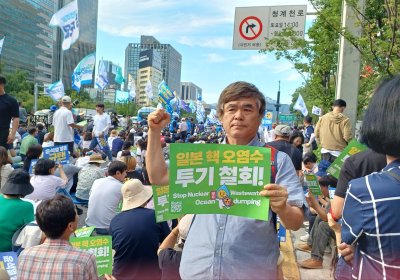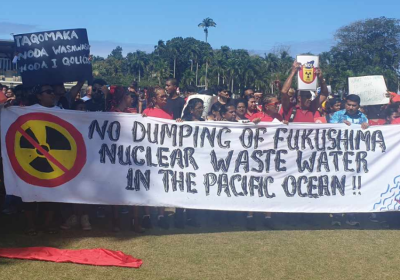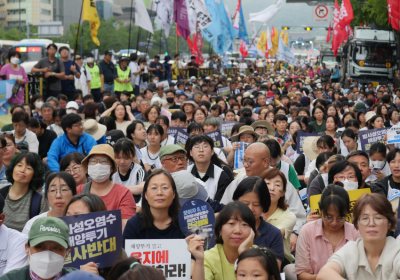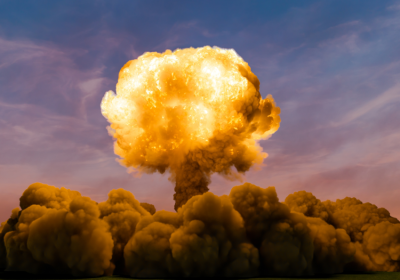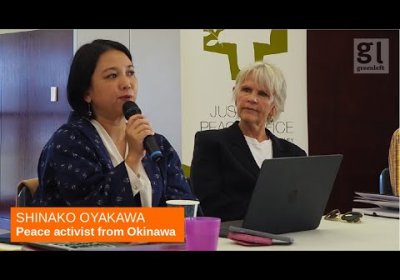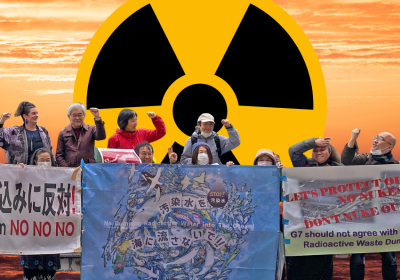The union representing pilots and cabin crew at budget airline Jetstar Japan began coordinated strike action ahead of Christmas, after a breakdown in collective bargaining negotiations with management, reports Clive Tillman.
Japan
Amid rising tensions in the Asia-Pacific, Japan’s government is ramping up defence spending. Japanese revolutionary socialist Akira Kato discusses the background to this move with Green Left’s Federico Fuentes.
Green Left's Peter Boyle spoke to Denise Yoon, a key organiser of the South Korean protests against the dumping of radioactive wastewater from the Fukushima nuclear power plant into the Pacific Ocean — which began on August 25.
A large crowd of protesters gathered in Suva, Fiji on August 25 to march and voice their collective opposition to Japan’s nuclear waste water disposal strategy, reports Rowena Acraman.
Scientists, environmentalists and fisherfolk from around the Pacific took part in a global media conference on August 10 as part of the campaign to stop Japan’s planned dumping of nuclear waste water from the Fukushima Daiichi Nuclear Power Plant into the Pacific Ocean, reports Peter Boyle.
The new blockbuster film Oppenheimer has raised complex questions on the nature of the society that permitted such bombs to be developed and used and the stockpiling of nuclear arsenals that can destroy the world many times over, writes Prabir Purkayastha.
The expansion of United States military bases in Okinawa, other islands in Japan, Guahan/Guam and Australia is a deadly threat to peace and to indigenous communities, warns Okinawa peace activist Shinako Oyakawa.
As Pacific communities protest the Japanese government’s plan to dump more than a million tonnes of radioactive waste water from the Fukushima nuclear plant into the Pacific Ocean, Australian anti-nuclear activists highlight the complicity of Australian uranium exporting companies, reports Peter Boyle.
The shock of former Japanese Prime Minister Shinzo Abe’s assassination should not blind us to the fact that he was an ultranationalist and militarist politician, who sought to whitewash imperial Japan’s war crimes, writes Rupen Savoulian.
A photo exhibition in Tokyo on January 23–26 celebrated the life and advocacy of Song Sin-do, who campaigned for an apology from the Japanese government for coercing her into sexual slavery during World War II, writes Melanie Barnes.
While researching Japanese working-class resistance to World War II, Kaye Broadbent discovered in a Japanese university archive Masao Sugiura’s 1964 memoir, detailing the formation and activities of the Shuppanako Kurabu (Print and Publishing Worker’s Club). Based upon Sugiura’s 1981 second edition, the English translation of Against the Storm provides an inspiring account of how Sugiura and his comrades were able to organise and sustain links between workers, despite increasing wartime repression by the Japanese military regime.
With the release of the full text of the Comprehensive and Progressive Agreement for Trans-Pacific Partnership (CPTPP) on February 21, activists in the 11 signatory countries finally got to see if their worst fears of a corporate power grab would be confirmed.
Unfortunately, they mostly were.
- Page 1
- Next page

